2016 NAEd/SPENCER DISSERTATION FELLOWS
John Bell, Harvard University

John Frederick Bell is a PhD candidate in American Studies at Harvard University. He received a B.A. in History and Religious Studies from the College of William and Mary in 2007 and an A.M. in U.S. History from Harvard in 2013. He specializes in nineteenth-century cultural, social, and religious history. His work has appeared in The Journal of the Civil War Era, Education’s Histories, and the History of Education Quarterly (forthcoming). Before beginning graduate study, he worked as an analyst at the National Archives and as a high school social studies teacher with Teach For America.
Equality by Degrees: Abolitionist Colleges and the Throes of Integration, 1833-1895
My dissertation examines early experiments in racial coeducation undertaken by abolitionists in the mid-nineteenth century. I focus on the first colleges to admit significant numbers of African Americans alongside whites and ask whether the principle of educational equality led to the practice of social equality among members of different races and sexes. Scholars of American social reform have previously shown how revolutionary ideas about racial and gender equality emerged from within the abolitionist movement. And historians of education have demonstrated how segregated schooling provided marginalized groups in this period the tools necessary for engaging in public life and articulating their rights. Yet few have considered the integrated, residential institutions where ideas of social equality were carried out in community. The first comparative study of these schools, my dissertation argues that while college founders enacted open admissions policies, it was students who most fully realized their egalitarian implications.
Living and working in biracial environments inspired black and white youth to imagine new possibilities for camaraderie across the color line, yet putting these ideas into practice brought them into conflict with school leaders. Trustees and faculty tended to view impartial education as a means of racial uplift more so than as a vehicle for interracial bonding. Specific disagreements arose over the integration of public spaces, the propriety of interracial relationships, and the hiring of black faculty. Through case studies of representative institutions, I trace the evolution of the social equality issue on campus from its origins in the 1830s through the 1890s. With the passing of the abolitionist generation, I argue, prejudice became more prevalent among white students and faculty. Not until the 1960s would college campuses reemerge as laboratories of racial egalitarianism.
Barbara Biasi, Stanford University
Barbara Biasi is a PhD Candidate in Economics at Stanford University, conducting research on education reforms aimed at promoting equality of opportunities to all children. In particular, Barbara has studied the effects of school finance equalization reforms on intergenerational income mobility of students, and she is now studying how changes in teacher salaries affect the composition of the teaching workforce. Prior to starting her doctoral studies, she worked as a Research Assistant at IGIER (Università Bocconi) and at the Fondazione Rodolfo Debenedetti in Milan, collaborating to research projects in Labor and Public Economics. Barbara holds a B.Sc. in Business Administration and a M.Sc. in Economic and Social Sciences from Università Bocconi (Milan), and she spent one semester at New York University – Leonard Stern School of Business as an undergraduate.
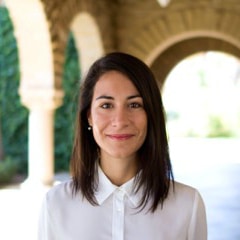
Wages and The Composition of the Teaching Body: Evidence from Wisconsin
Salaries of teachers in the US are often determined by a teacher’s academic qualification and years of seniority and are negotiated between teacher unions and school districts. The lack of a link between performance and compensation is regarded as one of the issues behind the challenges faced by many public school districts when attracting and retaining high- quality teachers. This paper exploits a recent reform of teacher pay in Wisconsin, which prohibited collective bargaining over salary schedules, to study the effects of performance pay on the composition of the teaching body. Evidence based on teacher-level data shows that teachers respond to salary changes by moving across districts or by leaving public schools. In particular, high-quality teachers move to districts with a high merit pay component of salaries, and low-quality teachers leave these districts. To quantify these responses I build and estimate a model of the teacher labor market, where districts make job offers and teachers accept or decline them, under two possible pay regimes: a salary-schedule regime and a performance-pay regime. Estimates from the model indicate that teacher responses depend on quality. The model is then used to analyze counterfactual policies on teacher salaries. I show that an increase in merit pay in one district is associated with an inflow of high-quality teachers and an outflow of low-quality teachers, which leads to an improvement in the overall quality of the workforce.
Kyle Booten, University of California, Berkeley
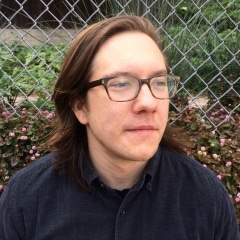
Kyle Booten is a doctoral candidate at UC Berkeley’s Graduate School of Education and the Berkeley Center for New Media. His research blends an ethnographic perspective with the techniques of the digital humanities in order to understand online literacy practices. His computational research has appeared in the conference proceedings of CHI and NAACL, and he contributed to a chapter on the future of writing instruction in the Handbook of Research on Teaching (5th ed.). Kyle holds an AB (English) from Princeton University and an MFA (Poetry) from the University of Michigan, Ann Arbor.
Online Quotation Culture: Investigating the Fate of the Book in the Age of New Media
This dissertation explores the fate of the book—our most important “old media”—in the age of new, digital media. On networks such as Pinterest, Instagram, and Tumblr, some of the most popular accounts are those that share quotations from TV shows, films, and books. In the context of online quotation culture, the words of authors such as Jane Austen, Søren Kierkegaard, and James Baldwin reach countless devoted readers, including school-aged ones. This culture represents a possible site of connection between academic literacies and the digital literacies that young people increasingly develop outside of school in online affinity groups. Still, educators might rightly wonder what young people gain from reading these authors not in their entirety but in fragments. This study begins by using ethnographic techniques to uncover participants’ reasons for circulating quotations from books on Tumblr, the competencies that they develop as they do so, and the connections that they forge between online quoting and non-digital literacy practices. Techniques of Natural Language Processing, some of them novel, are then used to analyze a large corpus of quotations shared on social media in order to better understand participants’ aesthetic values—i.e., what makes quotations quotable. Finally, a design intervention explores the ways that participation in online quotation culture can complement the traditional literacies of a college class. This multi-pronged study pushes back against popular narratives about the ways that social media use alienates young people from deep engagement with texts.
Tolani Britton, Harvard University
Tolani Britton is a doctoral candidate in the Quantitative Policy Analysis program at Harvard Graduate School of Education (HGSE). Tolani uses quasi-experimental methods to explore the impact of national, state, and local policies on students’ transition from secondary school to higher education, as well as access and retention in higher education. Prior to entering HGSE, Tolani worked as a policy analyst for the Organization for Economic Cooperation and Development (OECD) in Paris, France and as a high school math teacher and college counselor in New York City public schools. Her scholastic credentials include a Master of Arts in Economics from Tufts University, a Master of Arts in French Cultural Studies from Columbia University, and a Bachelor of Arts in both Economics and French Literature from Tufts University.
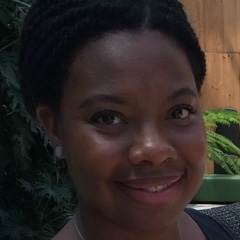
Locked Up and Locked Out: The Effects of the Anti-Drug Act of 1986 on Black Male Students’ College Enrollment
While research documents that rates of college access and completion have increased during the past several decades, the trend data also reveal differences by race and gender. My dissertation seeks to explore one possible reason why college enrollment and graduation for Black men has grown at slower rates than for other groups. I explore whether the disproportionate increase in incarceration of Black males for drug possessions and manufacture increased gaps in college enrollment rates by race and gender over two time periods- after the passage of the Anti-Drug Act from 1986 -1993 and after the passage of the Violent Crime Control and Law Enforcement Act from 1995 – 2014. I propose to use a differences-in-difference-in-differences strategy that will exploit both the federal law introductions and variation in state laws with regards to penalties for marijuana possession and the variable levels of state spending for police expenditure and the criminal justice system. For my analysis, I will use three datasets: the Current Population Survey (CPS) October Supplements, the Integrated Postsecondary Education Data System (IPEDS), and the Criminal Justice Expenditure and Employment Data. I plan to present detailed trends and analyses of the causal effects of drug laws and enforcement on college enrollment and attainment by race and gender, with particular attention to the outcomes for Black men. The results could have implications for understanding educational gaps by race and higher education policy as the country looks to reform the criminal justice system, and in particular the treatment of non-violent drug offenders.
Brandon Buck, Teachers College, Columbia University

Brandon Buck is Doctoral Fellow in philosophy and education at Teachers College, Columbia University. His primary research interests include philosophy of race and anti-racist critical theory, social and political philosophy of education, and theories of justice in education. Most of his work aims to bridge empirical policy analysis and normative theory. While at Teachers College Brandon has worked as a research assistant with multiple faculty in the Department of Education Policy and Social Analysis. His sole- or co-authored research has appeared in The Urban Review, Educational Policy, and The Journal of Catholic Education. Brandon earned a BA in political economy at The College of Idaho and an MA in Educational Policy and Foundations at Marquette University. He lives in Norwalk, Connecticut.
White Schools, White Ignorance: Toward a Racially Responsive Pedagogy
A great deal of education research has cataloged ways that white norms in schools operate to disadvantage children of color. Such research has generated a wide variety of important educational responses designed to resist racist and unjust schooling practices. But, despite volumes of research and significant changes made to educational practice in schools populated by nonwhite students, there has been no commensurate reconfiguration of the way white children are educated.
Building on Charles Mills’s research that develops an epistemological diagnosis of structural group-based “white ignorance,” this dissertation makes a case for why (and how) we need to seriously rethink ways that white children are educated in the United States. By theorizing a framework that places white-dominated schools at the center of critique, this dissertation shows how such schools are systematically reproducing white ignorance and its associated practices.
The core question that motivates the research is: How can white schools in white communities operated predominantly by white educators and attended predominantly by white students function to disrupt and mitigate the production of white ignorance?
This project advances a conception of racially responsive pedagogy, which represents a broad and sustained approach to educating white children, one that in many respects mirrors the scope and spirit of culturally responsive pedagogy in other contexts. The main thesis of this project is that a racially responsive pedagogy is a significant part of what is ultimately required to disrupt the proliferation of white ignorance in white-dominated schooling spaces and thereby mitigate white ignorance among white populations.
Karina Chavarria, University of California, Los Angeles
Karina Chavarria is a Ph.D. Candidate in Sociology at UC Los Angeles. Her research bridges areas of immigration, education, race and ethnicity. She currently focuses on the social and academic experiences of Latina/o undocumented youth. Her research is deeply rooted in a passion for and commitment to education, specifically equality of educational opportunities. Karina’s dedication to educational equity is grounded in her experiences working with minority students across the cities of Los Angeles, Dallas, and Chicago. She holds an M.A. in Social Science from the University of Chicago and B.A.s in Sociology and English from the University of California, Berkeley.
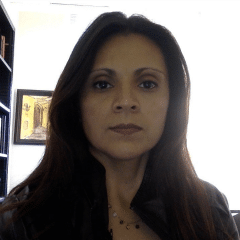
Land of Opportunity: School Incorporation of Undocumented Latina/o High School Students
While education attainment is a key predictor of social mobility, undocumented immigrant students face blocked social mobility due to their immigration status; despite this, they are better served to pursue education than not to do so. Research demonstrates that undocumented students encounter various obstacles while attending K-12 schools, such as limited school resources, structural inequalities, and negative educational stereotypes (Gonzales 2011; Tierney and Venegas, 2006). Yet, scant research has investigated how Latina/o students’ undocumented immigrant status shapes their school incorporation (day-to-day participation in programs and interactions with school personnel). This dissertation begins to address this gap by employing in-depth interviews and school ethnography to investigate three dimensions of undocumented Latina/o students’ high school life: 1) What are the school incorporation experiences (academic/non- academic program participation and teacher/student and peer-to-peer interactions) among undocumented Latina/o students? 2) How does school incorporation influence students’ access to and use of social capital (manifested as social ties, college-going information, resources for immigration matters)? 3) What are undocumented students’ post-high¬school paths? This study’s findings contribute to advancing equitable educational opportunities via educational policy. At the level of policy, meeting the academic and social needs of undocumented immigrant students requires that K-12 teachers/counselors become knowledgeable on the difficulties these students. Based on preliminary findings, some of the difficulties students face include establishing trusting relationships with school personnel, obtaining college related information in a timely manner, and finding the guidance to successfully transition from undocumented youth to undocumented young adults. In training the adults (teachers/counselors) who interact daily with students, schools can be supportive resource spaces fostering undocumented students’ successful transition into young adults.
Jordan Conwell, Northwestern University
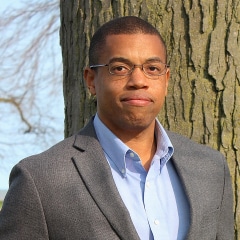
Jordan Conwell is a doctoral candidate in the Department of Sociology at Northwestern University. Using both quantitative and qualitative methods, he investigates how intersections of race and class inequality in students’ educational experiences and outcomes, in both K-12 and higher education, affect processes of racial stratification and intergenerational class mobility. He also has a longstanding interest in how historically-influential ideas about race and education, such as those of W.E.B. Du Bois, can inform present-day theory development, empirical analysis, and broader efforts to bring about equality of educational opportunity. While living in Chicago, he has also contributed to multiple published reports as a volunteer research assistant with the Chicago Teachers’ Union. His sole- or co-authored work has appeared or is forthcoming in Sociology of Education, The Journal of Negro Education, and Undergraduate Journal of Service Learning and Community-Based Research.
Racial Achievement Gaps within Income Categories: Historical Trends and Gap Development in a Single Birth Cohort
Education research has recently drawn attention to growing income achievement gaps in the United States. For cohorts of students born between the 1940s and 1960s, the black-white achievement gap was larger than the achievement gap between children whose families were at the 90th and 10th the percentiles of the income distribution. But, for cohorts born in the 1970s and later, the income gap has become larger than the black-white gap (Reardon 2011). Similarly, among the cohort of students who entered kindergarten in 1998, the fifth grade achievement gap between the top and bottom income quintiles was larger than both the black-white and Hispanic-white gaps (Duncan and Magnuson 2011). However, income achievement gap research has not investigated possible remaining racial achievement gaps within income groups. It has therefore not engaged with other research that finds that, across the range of income categories, there are still remaining educational inequalities between white, black, Hispanic, and Asian students within each income category (e.g., Massey and Brodmann 2014). In my dissertation, I will use six nationally-representative datasets to uncover 1) whether and how racial achievement gaps within income categories have changed across cohorts of high school students from 1960 to 2012 and 2) whether and how they developed from kindergarten through eighth grade among the cohort of students who entered kindergarten in 1998. The dissertation will build on research on both income and racial achievement gaps and inform ongoing debates about Affirmative Action policies in college admissions. In the 2014 case Schuette v. Coalition to Defend Affirmative Action, the Supreme Court upheld the right of voters in the state of Michigan to ban race-conscious policies in public university admissions. Recent research on income achievement gaps has been cited in support of the position that schools should stop considering race in admissions and turn to exclusively class-based policies (e.g., Kahlenberg and Potter 2014 in The New York Times Opinion Pages Room for Debate). Affirmative Action policies based on class alone, however, may ignore remaining racial educational inequalities within social class groups. It will remain unclear how large of a problem this is, or is not, until more research is conducted on K-12 racial achievement gaps within income groups.
Sarah Fine, Harvard University
Sarah M. Fine is a doctoral student at the Harvard Graduate School of Education, where she collaborates with Associate Professor Jal Mehta on a long-term ethnographic study of non-elite secondary schools that are striving to enact deep learning for all of their students. She also currently serves as a visiting scholar and course instructor at the High Tech High Graduate School of Education. Prior to starting her doctoral studies, she worked as a teacher and instructional coach at a charter high school in the District of Columbia, and as a freelance education journalist. Her work has appeared in a diverse array of publications, including The Washington Post, Educational Leadership, and Phi Delta Kappan, as well as academic venues including the Journal of Educational Change and the Harvard Educational Review. Sarah holds an A.B. from Harvard College, an M.A. from the Bread Loaf School of English, and an M.Ed. from the Harvard Graduate School of Education.

Unlearning Certainty: Deeper Learning, Restorative Practices, and the Quest to Transform Relationships at an Urban Charter School
As the twenty-first century hurtles forward, a growing number of American schools have set their sights on ambitious instructional goals—goals that go beyond basic literacy and numeracy to involve critical thinking and creative problem-solving. At the same time, in response to data demonstrating that youth of color tend to experience disproportionate rates of detention and suspension, many schools also have begun to replace zero tolerance policies with more equitable approaches to discipline. In this dissertation project, I explore how an urban charter school with emergent commitments to both of these goals is striving to enact them. Specifically, I employ the methodology of portraiture to explore and narratively interpret the work of a group of twenty instructional leaders who are engaged in an effort to transform the teaching, learning, and broader culture of their four-campus school in light of its newly ambitious vision—a vision which marries the goal of (re)organizing classroom instruction around the tenets of constructivism with the goal of (re)organizing school culture around the practices and processes associated with restorative justice. Taking a phenomenological approach, I focus on the experiences and sense-making of these leaders as they strive to apply this twofold vision to their work with each other, with teachers, and with students. The study’s findings shed light on the affordances and dilemmas associated with applying the restorative framework to situations of leadership as well as to instances of instructional practice; more broadly, they add to the knowledge-base about the nature of individual and organizational learning in the context of organizational change.
Dominic Gibson, University of Chicago

Dominic Gibson is a PhD candidate in Psychology at the University of Chicago. After receiving a BA in Psychology at Wesleyan University in 2010, he worked in the Johns Hopkins Laboratory for Child Development before arriving at the University of Chicago. His work explores how children learn abstract words and concepts, the origins of common misconceptions in mathematics, and research-based instructional strategies for improving children’s understanding of foundational math concepts. Previously, his work has been funded by a National Sciences Foundation Graduate Research Fellowship and an Institute of Educational Sciences Predoctoral Fellowship.
Putting Cognitive Science to Work: How Word-Learning Biases are the Source and Solution to Children’s Misconceptions in Mathematics
How do children learn that “three” refers to a number of items and not to another characteristic of the items (e.g. color, shape. etc.)? Early math concepts are fundamental to academic success, but children consistently struggle to learn words like “angle”, “unit,” or “three.” Although previous researchers have suggested that young children have conceptual deficits that prevent them from easily learning these concepts, in the present study I examine an alternative possibility. Namely, I test the novel possibility that children’s misconceptions actually stem from the way that math language is typically structured combined with the way that young children learn the meanings of words. By making simple changes to the structure of the language input that children receive so that it is more in line with their intuitions, we may be able to prevent misconceptions that can seriously delay children’s acquisition of key concepts. Specifically, I examine three cases of mathematical development – geometry (angles), measurement (units) and number (the integers) – all of which are abstract concepts and prone to misconceptions. In the first study, I show that children’s misconceptions regarding ‘angle’, do not stem from any inherent difficulty of this concept but from an assumptions they make when learning new words. In the second study, I test whether this principle may also explain children’s misconceptions regarding units of measurement. In the final study, I show how these principles can still be used to understand a more complicated example – children’s acquisition of the number words.
Eliot Graham, Rutgers, The State University of New Jersey
Eliot Graham is a doctoral candidate in education at Rutgers University. His desire to pursue a doctorate grew out of his experiences as a middle and high school teacher, especially his experiences working with low-income students of color. He is broadly concerned with issues of educational equity, particularly along the lines of race and class, and his current work in that area focuses on issues of authority in the classroom. His research utilizes ethnographic methods to center the voices and perspectives of students and parents. While passionate about his research, Eliot also still considers himself a teacher, and has taught classes in the teacher education programs at both Rutgers and Harvard. In his future career, he hopes to balance university level teaching with research projects that allow him to work alongside students, parents and teachers in marginalized communities.

“In Real Life, You Have to Speak Up”: Civic Implications of Behavior Management in a No-Excuses Charter School
Educational equity for low-income children of color is often conceptualized exclusively through the lens of the “achievement gap.” In contrast, I argue that educational equity requires that marginalized young people be prepared not only to achieve academically, but to act civically. Only civic action, not individual achievement, can address the structural inequalities that continue to shape life in low-income, urban communities of color. The purpose of this one-year ethnographic study is to examine the implications of “no-excuses” behavior management practices for students’ civic development. Focusing intensely on a group of sixth-graders, I trace how their experiences in school shape their relationship to institutional authority, and the implications of this relationship for their development of engaged, critical civic identities. Intense involvement in the life of the school, and especially with a single group of students, allowed me to form a holistic view of those students and thus to perceive the complexities, contradictions, and implications of their interactions with school authority structures. My preliminary findings suggest that many students experienced school as a place in which one of the most valued behaviors was following the rules, even when they felt the rules were nonsensical or unfair. Students also seemed to be learning that association with others and speaking up for what you believe in—critically important civic behaviors—are actions that come with substantial risks. Meanwhile, the school’s somewhat contradictory stance toward student voice, which encouraged involvement in some arenas while emphasizing conformity in others, raises the question of whether the press for standardization in no-excuses schools and networks makes cultivating students’ abilities to be engaged civic agents significantly more difficult.
Shayl Griffith, University of Massachusetts Amherst

Shayl Griffith is a doctoral candidate in the Clinical Psychology program at the University of Massachusetts Amherst. She received her B.A. in Psychology from Clark University and her M.S. in Clinical Psychology from the University of Massachusetts Amherst. Shayl’s research interests center on the social, emotional, and academic functioning of preschool-aged children. Her work over the next year will examine parent-child interactions around mobile technology and related implications for preschool children’s outcomes.
Home Learning in the New Mobile Age: Parent-Child Interactions and Emergent Academic Development across Multiple Home Learning Contexts
Parent involvement in home learning activities plays an important role in the academic development of young children, particularly before the start of formal schooling. Parents’ ability to skillfully incorporate pre-math and pre-literacy concepts into their everyday interactions with their children, to foster children’s engagement with educational materials, and to regulate children’s use of educational and non-educational media (e.g., books, TV), has important effects on early academic achievement and school readiness. The rapidly increasing popularity of touch screen mobile devices such as smart phones and tablets, and the accompanying educational and non-educational applications (“apps”) targeted towards preschool children, calls for a new look at parent-child interactions around at-home educational materials, and parent involvement in children’s early academic development in the home. Little information is available on how parents navigate their children’s introduction to, and use of, educational mobile technology, or their attitudes towards the use of this new technology. The proposed study will describe, using observational data, parent-child interactions around educational apps and mobile devices, in a sample of 36 families with preschool-aged children. The study will further examine parental beliefs and practices around mobile technology use in the home, and relations among parent attitudes, parent practices, and child achievement outcomes. The proposed study represents an important first step towards updating existing knowledge about parent-child interactions and early academic development to include issues relevant to the new mobile age.
Rita Harvey, University of Pennsylvania
Rita Harvey is a doctoral student in the Education, Culture, and Society division of the Graduate School of Education at the University of Pennsylvania. She holds a BA in African American Studies from Columbia University. After completing her B.A., Rita taught at DeWitt Clinton High School in the Bronx, while pursuing her M.S.Ed. in Urban Education from the City College of New York. Her dissertation project focuses on classed and racialized readings of cultural capital of adjudicated adolescents. Her broader research interests include the voices of young people who sit at marginalized intersections of race, disability, gender, and class, and the strategies they feel are most effective for their education.
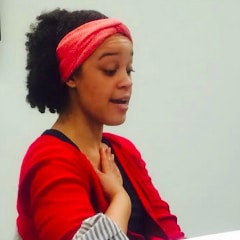
Complexities of Capital: Readings of Cultural Capital in the Education of Youth on the Margins
Focusing on the interactions between teachers and students at a small residential juvenile facility in the Northeast, this dissertation project examines the complexities and nuances of the enactment and interpretation of adolescent displays of cultural capital in educational settings. While research on adjudicated youth focuses on the academic and social weaknesses of adolescents who have contact with legal systems, this project contributes to the literature that moves beyond these deficit narratives. Grounding my data collection in participant observation and unstructured interviews, I use ethnographic methods to examine the circumstances under which adolescents display cultural capital and how teachers interpret and reframe these displays. Adolescents display an array of dominant and non-dominant cultural capital, but these displays are highly contextualized, and contingent upon relational dynamics on the part of both students and teachers.
Daphne Henry, University of Pittsburgh
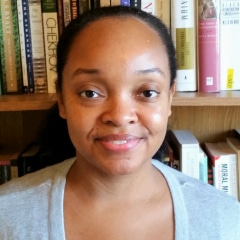
Daphne Henry is a doctoral candidate in developmental psychology at the University of Pittsburgh, where she also completed a B.A. in history. Her research investigates how socioeconomic status (SES) and race/ethnicity intersect to shape children’s cognitive and academic development in early childhood. Specifically, she examines the origin and trajectory of achievement disparities between SES-matched Black and White children as well as the factors that foment within-SES racial skills gaps. Ultimately, her research aims to delineate how differences in early formative experiences promote disparities in school readiness and long-term educational outcomes. Daphne’s work is interdisciplinary and incorporates theoretical insights and empirical evidence from developmental psychology, sociology, and economics to understand the underlying processes that produce racial and socioeconomic disparities in family life and child development. She is the recipient of a National Science Foundation Graduate Research Fellowship and an American Psychological Foundation Elizabeth Munsterberg Koppitz Graduate Student Fellowship.
The Intersection of Race and Socioeconomic Status (SES) in Early Family Life: Why Do the Academic Returns to SES Differ for Black and White Children?
The Black-White achievement gap appears early in childhood, persists into adolescence, and undermines the future well-being of Black children. Gaps in academic skills drive much of today’s continuing Black-White disparities in wages, schooling, employment, and poverty. Black children are more likely to grow up in disadvantaged families; thus, it’s tempting to lay the origins of the Black-White test score gap at the feet of the socioeconomic adversity Black families confront. However, the interplay between SES and race is more complex. First, racial achievement disparities often persist after taking family SES into account. Second, the size of Black-White performance gaps vary by social class, with the largest disparities evident among the highest-SES students in middle and high school. Lastly, recent research shows that income’s associations with cognitive skills differ for Black and White youth. What remains unclear is why the academic returns to SES differ by race. Increasing evidence suggests that racial disparities in proximity to multiple forms of (dis)advantage and corresponding inequalities in access to social, cultural, and economic resources may help explain why Black and White children do not reap similar rewards from family socioeconomic advantage. Yet little research has investigated these pathways.
This mixed-methods project therefore has four research aims. Study 1 uses nationally representative data from a cohort of students who entered kindergarten in 2010 to (1) investigate whether and how race moderates the relations between family SES (i.e., family income and parental educational attainment) and academic skills at school entry, and (2) assess whether Black-White differences in proximity to community (dis)advantage, parenting behaviors and attitudes, and family routines explain why the association between SES and achievement varies for Black and White children. Study 2 collects survey, interview, and observational data from a stratified sample of low-, middle-, and high-income Black and White families to (3) explore within-SES racial disparities in proximity to intergenerational, spatial, and relational (dis)advantage and in access to social capital, cultural capital, and wealth, and (4) investigate within-SES racial differences in young children’s developmental contexts that may be attributable to these disparities. Together, these studies will enhance understanding of the independent and interactive associations between race, family SES, and early academic skills, elucidate the pathways through which nearness to (dis)advantage influences young children’s development, and inform a novel conceptual model of how race and SES intersect to shape early family life.
Laura Hernández, University of California, Berkeley
Laura E. Hernández is a doctoral candidate in the Policy, Organizations, Measurement, & Evaluation program at UC Berkeley’s Graduate School of Education. Her research focuses on the racial politics of K-12 reform and its implications for educational equity and democracy. Her upcoming dissertation investigates the political and racial dynamics surrounding charter management organizations (CMO). She explores various perceptions of CMOs operating in one urban district, noting the material, relational, and discursive strategies CMOs use to foster coalitions comprised of various stakeholders and racial groups. Before entering the doctoral program, Laura worked as an elementary and middle school teacher for nine years in Los Angeles and New York City, working in both traditional public and charter school settings. She holds a B.A. in Political Science from the University of California, Los
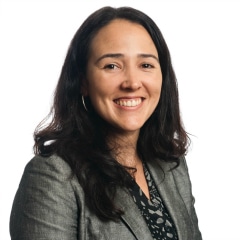
Managing the Brand: Racial Politics, Strategic Messaging, and the Coalition-Building Efforts of Charter Management Organizations
Policymakers and reformers have increasingly advocated to scale up the number of high quality charter schools to improve educational opportunities for communities of color. While many endorse charters as a means to address inequities, politics, or the manner in which power relations are enacted and asserted in the charter context, may complicate the degree to which charters advance educational equity. As charters engage in strategic behaviors to secure resources, they persuade and interact with various stakeholders to build coalitions supporting their institutional presence. These behaviors occur within local contexts characterized by unique political, economic, and racial dynamics that can affect how power and influence work at the local level. This study focuses centrally on these coalition-building efforts. In this qualitative case study, I employ an interdisciplinary framework synthesizing concepts from political science and sociology to explore the political and racial dynamics of efforts implemented by charter management organizations (CMOs)—nonprofits with the specific mission of replicating ‘what works’ across a network of schools. I examine how CMOs relationally and discursively engage various stakeholders, how local politics and racial histories intersect with CMO efforts, and how CMOs acknowledge and address race throughout the process. I analyze CMO strategies and stakeholder perceptions of the CMOs operating in one urban district along with an in-depth analysis of three nested organizations who vary distinctively in organizational status to consider how their efforts to sustain or grow their brand affects coalition building and relationships with stakeholders. With this analysis, I draw more scholarly attention to this growing actor in education and the manner in which local politics may complicate or ease ongoing efforts to increase educational opportunities for marginalized racial groups.
Jennifer Higgs, University of California, Berkeley
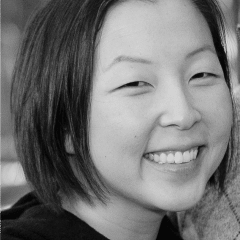
Jennifer Higgs is a doctoral candidate in the Graduate School of Education and the Berkeley Center for New Media at the University of California, Berkeley. Her research, which focuses on technology integration in the language arts classroom, adolescent literacies, and pre- and in-service teacher education, employs mixed methods and is informed and inspired by her experiences as a middle and high school English teacher in Virginia and Illinois public schools. She holds a B.A. in English from Cornell University, an M.A. in Literature from Northwestern University, and an M.S. in Education and Social Policy from Northwestern University.
A National Study of Talking to Learn Across Digital and Face-to-Face Contexts in K-12 Classrooms
Research shows that discussion practices in classroom settings can support student learning (e.g., Freedman & Delp, 2007; Nystrand, 1997). With the increasing popularity of information and communication technologies in K-12 spaces, classroom discussion has expanded into digital settings, but the relation between learning and digital talk—what I refer to as the interactive written communication that occurs in networked online spaces—is less clear. The present study provides the first scholarly examination of digital talk as a learning resource in K-12 classrooms nationwide. Drawing on sociocultural learning theories and social science perspectives on information technology, it uses mixed methods to examine classroom uses of Subtext, a popular e-reader that supports discussion “inside” e-texts, as a case to reveal issues related to digital talk. It aims to shed light on (a) discourse features of classroom digital talk, (b) the social and cultural contexts that mediate it, (c) online and offline practices that influence it, and (d) relationships between types of digital talk and types of learning. The study integrates multiple levels of analysis, including computational text analysis, survey data, and design-based research. Data include digital discussion archives from approximately 5,700 Subtext-using K-12 classrooms, surveys of 458 teacher-users, and systematically collected records from design experiments with two teachers who worked with me to design and implement instructional practices aimed at encouraging authentic student talk across face-to-face and digital learning contexts. Preliminary analyses of the design research offer a suggestion of the ways that digital talk is shaped by the social contexts surrounding the talk.
Rebecca Hinze-Pifer, University of Chicago
Rebecca Hinze-Pifer is a doctoral student at the Harris School of Public Policy. Her research focuses on institutional structures that affect human capital development in adolescents and young adults, with particular interest in the education and juvenile justice systems. Her current work applies rigorous empirical methods to explore the impacts of school and classroom practices on student learning and socioemotional development, with the aim of developing policy and practice-relevant insights. Rebecca was a Pre-Doctoral IES Fellow, an AERA-MET fellow, and is a Doctoral Fellow at the Urban Education Lab. She holds an MPP from George Washington University and a B.S. in astrophysics and computer science from the University of Wisconsin – Madison, and worked as a public school teacher for seven years.
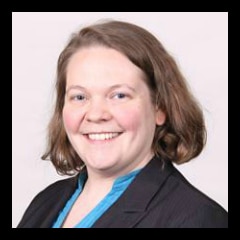
Student Behavior in Context: Examining School Practice Contributions to Behavioral Peer Effects
Behavioral peer effects are often cited as a primary rationale for classroom and school discipline policy. While there is strong empirical support for the notion that students are affected by the behavior of their peers (Epple & Romano, 2011; Lazear, 2001), relatively little work has explored the precise pathways through which they operate. A careful exploration of the mechanisms underlying peer effects is a necessary next step in furthering theory building, interpreting existing results, and translating research findings into useful insights for teacher practice and education (Epple & Romano, 2011; Hoxby & Weingarth, 2005). My dissertation is comprised of three studies examining different dimensions of school and teacher behavior management practice as mechanisms through which behavioral peer effects may operate. Two of the studies draw data from the Measures of Effective Teaching classroom video collection and associated administrative data to explore (1) the extent to which disruptive behaviors directly interrupt classroom activities and induce proximal changes in teacher practice, and (2) the associations between teacher’s specific classroom management strategies, student learning growth, and student reports of classroom climate. Using full-universe administrative data from the Chicago Public Schools, the third explores how a long-term shift in school suspension policy impacted student outcomes and reports of school climate. Together, these studies substantially contribute to our understanding of the relationship between school practice and the mechanisms underlying established behavioral peer effects, as well as documenting important dimensions of classroom management and time use which are not established elsewhere in available literature.
Laura Horton, University of Chicago
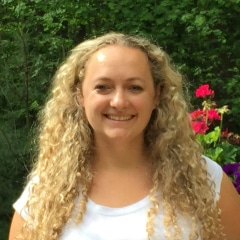
Laura Horton is a doctoral candidate in the Department of Comparative Human Development and Department of Linguistics at the University of Chicago. Her research focuses on the interaction of language emergence and language acquisition at home and in school. Laura uses experimental and ethnographic methods to document the manual communication systems developed by deaf children attending a school for special education at her field site in Nebaj, Guatemala. Her work centers on the role of peers versus adults as sources of communicative input in the context of atypical language acquisition. Her research has been funded by the Tinker Foundation, the Robert Lemelson Foundation and the NSF. Laura holds a B.Arch. from Carnegie Mellon University and an M.A. from the University of Chicago. Before coming to Chicago, she worked as an elementary special education teacher outside Baton Rouge, Louisiana.
The Influence of Communicative Ecology on Language Acquisition and Emergence at Home and in School: Shared Homesign Systems in Guatemala
School classrooms are not the typical setting for first language acquisition. Almost all children acquire their native language at home, in the first few years of life. These children interact with proficient, more experienced, language users and many theories of development emphasize the critical role of expert-novice interactions in the development of thinking and communicating (Rogoff, 1990; Vygotsky, 1978; Maynard, 2002). Deaf children who are born into hearing families, however, cannot access the spoken language used by the proficient speakers in their environment. In the absence of linguistic input, these deaf children develop homesign systems: meaningful, structured gestural strategies for communicating (Goldin-Meadow, 2003). In the United States, deaf children rarely remain homesigners because government services provide sign language exposure or medical interventions like hearing aids and cochlear implants. In countries like Guatemala, however, where early interventions are scarce, many deaf children reach school-age as homesigners and thus enter school lacking proficiency in any established language. This project is based on cross-sectional and longitudinal video data gathered in the town of Nebaj, Guatemala and centers on the following questions: What happens when individual child homesigners encounter other child homesigners at school? How does this “micro” linguistic community affect the homesign systems of each individual child and to what extent is the system that develops shared across its users? The answers to these questions have implications for educational practice for deaf students and students in multilingual settings who receive highly varied input at home, prior to school entry.
Alisha Johnson, University of Illinois at Urbana-Champaign
Holding a BA in Philosophy from Whitman College and an M.Ed in education policy studies from the University of Washington, Alisha Johnson is a PhD candidate and education historian in education policy studies at the University of Illinois at Urbana-Champaign. Broadly, Alisha’s research interests focus on historical spaces of non-interference in black education. Her most pressing questions are attentive to historical spaces of black educational mobility, or what she calls “the holes in the net.” Further, Alisha is concerned with the ways that discourses of mimicry and deficiency have operated in our understanding of black education both historically and in our scholarly work. Alisha is deeply interested in how these narratives have been perpetuated and reproduced in American social and educational structures to the present day. To that end, she is very interested in how our shared history can be used to broaden the understanding of fellow researchers and future teachers as we come into an age of increasing diversity.
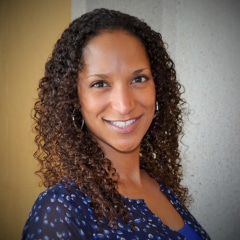
Respectable from their Intelligence: The Education of Louisiana’s gens de couleur libres, 1800 to 1860
This work delves into the unprecedented degree to which educational opportunity was afforded Louisiana’s gens de couleur libres (free people of color) from the beginning of the nineteenth century to the dawn of the American Civil War. Gens de couleur were free persons of African lineage, including mixed-blood descendants of French colonists, many of whom amassed substantial wealth. The children of these families were educated in a manner consistent with their status: private schools were created, tutors were hired, and some felt that a suitable education could only be acquired through travel to France for schooling. Given that this community achieved far higher levels of wealth and schooling than their North American counterparts, this research focuses on answering the central question: What enabled an entire community of color to achieve substantial scholarly attainment in a society defined by racial oppression? This inquiry necessarily considers Louisiana’s unique convergence of race, class, and culture to understand what differentiated this community’s opportunities from those of other free communities of color during this period and after.
Anthony Johnson, Northwestern University
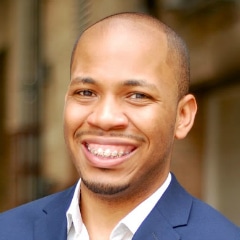
Anthony Johnson is a PhD candidate in Sociology at Northwestern University with research interests at the intersection of culture, social inequality, and education. Anthony holds a B.A. and an M.A. in sociology from the University of Kansas and Northwestern University respectively. His dissertation examines the cultural mechanisms that reproduce disparities in STEM experiences, achievement, and persistence at elite colleges and universities. Drawing on a combination of interview, ethnographic, and survey data, he seeks to understand how STEM institutional policies, practices, and norms as well as the class-, race-, and gender-based cultural and social resources students bring to college contribute to the reproduction of STEM disparities. Anthony’s work has previously been funded by a graduate research fellowship from the National Science Foundation and he was named a finalist for the Ford Foundation Predoctoral Fellowship in 2013.
Social Identity, Campus Culture, and STEM Persistence at Selective Colleges and Universities
Decades of scholarship has found that peer groups affect a variety of academic outcomes, from students’ attitudes about schooling, to their educational aspirations, to their grades. However, it is less clear how academic peer groups are formed and how they reproduce disparities in academic achievement. Opening the black box of academic contexts like STEM at elite colleges and universities, this dissertation reveals how undergraduate students sort into socially segregated and stratified academic peer groups. Combining interviews with a socio-demographically diverse group of 80 students with ethnographic observations of classes and extracurricular life at an elite engineering school, I show that while academically rigorous contexts are presumed to be meritocratic and value sheer book smarts and hard work, students draw on an array of cultural tools to navigate these peer groups, and the activation of particular social and cultural resources—attributed to social class and related pre-college experiences, race/ethnicity, and gender—systematically allow some students to be academically incorporated while others are excluded. The dissertation tests the generalizability of these findings by predicting the relationship between students’ cultural orientations and various STEM achievement outcomes using a nationally representative longitudinal survey dataset of students at selective colleges and universities. The dissertation’s findings have implications for sociological theory, higher education practice, and policy.
Nicholas Johnson, University of California, Los Angeles
Nick Johnson is a doctoral candidate in Urban Schooling at UCLA. He studies teaching and learning through the lens of children’s mathematical thinking. Prior to entering graduate school, Nick worked as a classroom teacher, instructional coach, and professional development coordinator and facilitator, supporting teachers to make use of research-based information about the development of children’s mathematical thinking. Nick’s work strives to build connections between research, policy, and classroom practice, and to better understand issues of equity as related to teacher learning and children’s schooling experiences.

Expanding Competence: Creating Space for Students to Engage with Each Other’s Mathematical Ideas
Recent efforts to investigate opportunities to learn in mathematics classrooms highlight varied conceptions of what it means to know and do mathematics, and in turn what it means to be mathematically competent (e.g., Boaler & Staples, 2008; Nasir, Hand, & Taylor, 2008). This work draws from sociocultural perspectives on learning and presents a dynamic conceptualization of competence—what counts as competent mathematical activity is negotiated and constructed within learning environments, and therefore varies across and within classrooms (Gresalfi, Martin, Hand, & Greeno, 2009). As dominant views of mathematical competence can overlook students’ varied ways know knowing and participating (Martin, 2009), unpacking competence and how it shapes and is constructed in interaction provides an approach to examine opportunities to learn as they play out in classrooms and schools. But while research on classroom teaching has begun to explore the ways in which engaging students with each other’s ideas can support learning while also positioning students to see themselves and others as competent contributors to classroom mathematical activity (Franke et al., 2015; Turner et al., 2013), little research has examined the specific ways that classroom interactions serve to construct what count as competent ways of participating, or relations between collective understandings of competence and other indicators of students’ learning.
This dissertation presents a comparative case study of two third-grade classrooms where teachers supported students to engage with each other’s mathematical ideas. Offering a preliminary synthesis of sociocultural characterizations of competence, and drawing from a variety of data sources including classroom video, student work and assessments, and teacher interviews, this study investigates how competence is assigned, the forms of participation that are assigned competence, and how these particular constructions of competence shape the mathematics that students learn and the kinds of agency they exercise. Broadly, this dissertation seeks to contribute to the field’s understanding of how current reform efforts may be enacted in classrooms in ways that move beyond general descriptions of good teaching, through exploring the nuances of how specific supports, lesson structures, and interactions open or constrain opportunities for students to “take up their space” (Hand, 2012) in mathematics classrooms.
Cristina Lash, Stanford University
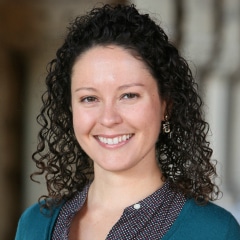
Cristina Lash is a doctoral candidate in the Stanford Graduate School of Education. Her current work explores how schools have adapted to racial, ethnic, and cultural shifts as a result of immigration to the United States. More broadly, her research interests include cultural reproduction in education, new theories of assimilation, and the intersection of race, ethnicity, and language. Cristina has been awarded numerous fellowships as a graduate student, including the California Flanders Fellowship, the Diversifying Academia, Recruiting Excellence Fellowship at Stanford, and the Graduate Dissertation Fellowship through the Research Institute for Comparative Studies in Race and Ethnicity. She received her M.A. in Social and Cultural Studies in Education at University of California – Berkeley, and her B.A. in Comparative Literature at Stanford University. Prior to graduate school, Cristina was an English as a Foreign Language teacher in Peru, and American Reads Tutor Coordinator at the University of Minnesota in Minneapolis.
Making Americans: Schooling, Diversity, and Assimilation in the Twenty-First Century
The United States has become increasingly diverse over the past thirty years, largely due to the latest wave of immigration from Latin America and Asia. Yet little research has explored how schools – as institutions of Americanization – have adapted their curricula, structures, and classroom relations to accommodate these demographic and cultural shifts. My dissertation explores how schools teach what it means to be American in the current context of immigration-driven diversity. Based on a comparative ethnography of two middle schools located in cities with dramatically different levels of immigration, I reveal how schools “make” American nationals and foreigners through direct classroom instruction, school programming and events, and daily interactions between peers, teachers, and staff. My research contributes to the literature on assimilation, national identity, and the sociology of education in several ways. First, I theorize how efforts to reduce the “ethnic distance” between schools and their student populations may be explained as process of bi-directional assimilation, whereby both mainstream institutions and immigrant communities undergo ethnic change (Alba & Nee, 2003). Second, I show how new definitions of national identity (e.g., American) may emerge through this process of bi-directional assimilation between institutions and immigrant communities. Finally, I illuminate how a school’s model of Americanness and the practices for teaching this model are shaped by the local context of immigration. Findings from this study will support policy makers, curriculum designers, and educators to create school communities that are inclusive of our increasingly diverse national population.
Lauren Lefty, New York University
Lauren Lefty is a doctoral candidate at New York University in the History of Education program. She holds a bachelor’s degree in History with a minor in Spanish Language from NYU, where she graduated summa cum laude and Phi Beta Kappa. Before beginning graduate work, Lauren worked as a middle school teacher on the Texas-Mexico border, a high school teacher in Brooklyn, and as a policy planner for the NYC Department of Education. Her research and scholarly interests focus on education policy and activism across the Americas, Latino education in the U.S., and teacher preparation policy. In addition to her dissertation, she is currently co-authoring a book on the recent history of teacher education in the United States.

Seize the Schools, Que Viva Puerto Rico Libre: Cold War Education Politics in New York and San Juan, 1948-1975
This dissertation examines connections between education politics in New York City and San Juan, Puerto Rico between 1948 and 1975, considering how both high level policy and grassroots activism were shaped by transnational interactions and a larger Cold War political context. It explores, for example, how debates about education’s role in economic development, community control, and bilingual education engaged questions of modernization, sovereignty, and citizenship as well as the more oft-recognized debates regarding race and postwar American multiculturalism.
By following the movement of policymakers, education researchers, teachers, students, activists, and parents from island to mainland and across the Americas, this study aims to not only add another voice to the multicultural chorus, but fundamentally alter the way we frame the narrative—geographically, temporally, and ideologically. Ultimately, by expanding the geographical reference points for well-known postwar education milestones, such as President Johnson’s Great Society and ESEA reforms, the late 1960s community control debates, and the fight for bilingual/bicultural education, we can gain a better sense of the ideological content of these battles, and better conceptualize the complex relationship between education, empire, and capitalism across the Americas. Considering the increasing number of Latino students in the U.S. public school system, and the links between pro- and anti-neoliberal education politics in the U.S. and Latin America in the present, it also hopes to uncover thematic parallels between the era under scrutiny and our current age helpful for historians, educationists, and policymakers alike.
Ian Lowrie, Rice University

Ian Lowrie is a doctoral candidate in anthropology at Rice University, and holds a bachelor’s degree in anthropology from Reed College. His current research focuses on education, work, and rationality in the Russian data sciences. This fieldwork for this research was supported by the Wenner-Gren Foundation, American Councils for International Education, and the Rice Social Science Research Institute. More generally, he is interested in how human and nonhuman cognition work together to build the sociotechnical infrastructures of our contemporary knowledge economy. As he works towards completing the dissertation, he has begun a new project studying the intersections of data science and neuroscience. Ian is the book review editor for the journal Magic, Ritual, and Witchcraft, and an associate editor at the CASTAC Blog.
Learning Machines: Industrial-Academic Collaboration in Russian Data Science
This project is based upon twelve months of ethnographic research in Moscow at the National Research University – Higher School of Economics and the web-services firm Yandex, sometimes called the “Russian Google,” both leading institutions of Russian data science. It focuses on elite efforts to restructure postsecondary education in order to build a more robust Russian information economy. By investigating the novel forms of training and research emerging at key hybrid industrial-academic institutions such as, this research provides critical and timely insight into the rapidly changing organization of computer science and applied mathematics pedagogy during a time of heightened volatility within the Russian science and education system more generally. Drawing upon grounded theory, it employs qualitative data analysis techniques to code and interpret seventy-five semi-structured interviews, which are complemented by data drawn from participant observation in classrooms, academic seminars, and industrial educational programs. In so doing, it promises to broaden the existing literature on education and innovation in the computer sciences beyond inherited descriptions based primarily on studies of Silicon Valley and the American research university. In addition to providing useful comparative insight into the concrete dynamics of education in the data sciences, this dissertation promises to substantially complicate our inherited understandings of how university-industry-state relations drive developments in the global information economy. Most generally, it aims to understand the processes whereby students and trainees learn to inhabit and perform algorithmic rationality, and how this rationality operates within the extended sociotechnical systems subtending contemporary forms of capitalism.
Julia McWilliams, University of Pennsylvania
Julia A. McWilliams is a Ph.D. candidate in the Graduate School of Education and Department of Anthropology at the University of Pennsylvania. Julia’s research interests include urban education reform, racial inequality, and immigration. Her dissertation examines how school closure as reform shapes governance and organizational structures in urban public schools facing the threat of closure. She is currently a lecturer in the School of Education at Temple University and the Urban Studies program at the University of Pennsylvania. She also serves as an ESL teacher in Philadelphia’s Migrant Education Program. In addition to work on school reform in Philadelphia, she has conducted ethnographic research on the educational experiences of recently resettled refugee populations from Burma and Bhutan. Prior to beginning graduate school, Julia received a B.A. in political economy from Princeton University and an MS.Ed. from the University of Pennsylvania and spent several years teaching in a small college in Vientiane, Laos.
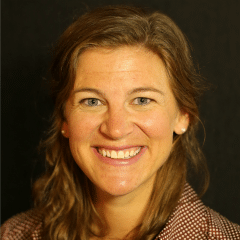
Branding Against Closure: Philadelphia Neighborhood Schools and the Management of Risky Futures
Philadelphia is one of many distressed American urban school districts, from Chicago to New Orleans, that has embraced market-based responses like school closures to tackle entrenched problems of funding and academic performance. While urban districts have increasingly appropriated closures-as-policy, little scholarship interrogates the sweeping social and organizational changes in governance and praxis that schools make when faced its explicit ultimatum: compete or close. Applying a framework developed in the anthropologies of branding and value, this dissertation explores school leaders’ fraught responses to imminent closure as they attempted to make their “value” legible in an expanding marketplace of school choice. Through a three-year ethnographic case study of an ethnically diverse neighborhood school slated for closure, I examine how the school’s strategies to remain open hinged on the selective enrollment and retention of students deemed “valuable” to their imagined brand. As these practices indexed raced notions of “value”, I analyze how school branding processes deepen racialized disparities in educational provision.
Methods include over 200 semi-structured interviews with students, teachers, and administrators, participant observation in classrooms, district offices and meetings, and document analysis. As closures continue to threaten urban public schools across the United States, this study uniquely captures the dilemmas that surface in educational practice and philosophy when schools prioritize the business of survival over the business of educating. Further, I contribute to emergent literatures in educational commodification and marketization by explaining how school branding, prompted by closure threats and competition for school survival, extend inequities in opportunity structures for vulnerable youth.
Louis Mercer, University of Illinois at Chicago

Louis Mercer is a PhD Candidate in the History Department at the University of Illinois at Chicago. He is a former middle school and high school social studies teacher with research interests in education, mass incarceration, school-to-prison pipeline, urban studies, and modern United States history. His dissertation focuses on the causes and consequences of growing police presence in Chicago’s schools in the second half of the 20th Century. He continues his deep commitment to promoting excellence in teaching with his participation in the Teaching of History track in UIC’s History Department. Louis earned his BA in Political Science at the University of Wisconsin-Madison in 2004 and a MA in History from the University of Wisconsin-Milwaukee in 2012, where he studied the 1968 black student-led protests for improved education in Chicago and Milwaukee.
Detention of a Different Kind: Police, Chicago’s Schools, and the Origins of the School-to-Prison Pipeline
This historical account of the origins of the school-to-prison pipeline illustrates how the increasing presence of police officers in Chicago’s schools from the 1950s to the 1980s coincided with rising racial and ethnic tensions, a punitive turn in the philosophy of juvenile justice, and ultimately contributed to mass incarceration. This dissertation will push the narrative of the school-to-prison pipeline earlier than most sociologists and criminologist look, to when legal and social structures shifted to create mass incarceration in the United States. In 1966, in the midst of large-scale protests for better schools and desegregation, the Chicago Board of Education hired off-duty police officers to patrol the halls and several inner-ring suburbs followed suit as many in the black middle class moved out of the city. Administrators argued police could protect students and facilitate desegregation, and city officials and many parents of all races agreed. Police presence in schools rapidly increased even as whites fled the schools, and police and administrators created new justifications for providing a permanent presence of uniformed police officers in schools of Chicago. As stakeholders sought to rid schools of the perceived threats from drugs, gangs, and so-called superpredators, tactics employed by police in schools began pushing more students of color into the criminal justice system, thus making police in schools a key component of understanding mass incarceration. Using archival evidence, oral history interviews, and social research, this case study of Chicago schools provides an understanding of how the school-to-prison pipeline was built and will assist education activists and reformers looking to create more just systems of discipline in schools.
Sarah Miller, University of Massachusetts Amherst
Sarah Miller is a doctoral candidate in the Department of Sociology at the University of Massachusetts, Amherst. Her research focuses broadly on youth, education, and social inequality. Her dissertation draws from two academic years of fieldwork, social media observations, and 127 in-depth interviews to explore the varying impacts of youth conflict and anti-bullying initiatives on a high school community in the Northeast. Her other studies have investigated community debates over representations of sexuality in schools and how class, race, and sexuality shape young women’s experiences with relational aggression. Sarah’s research has received funding from the National Science Foundation, the University of Massachusetts, and the Center for Research on Families and has been published in Gender & Society, Sexualities, and the Journal of Youth and Adolescence. She has worked as a research assistant for the Center for Research on Gender and Sexuality, Future of Sex Education, and Advocates for Youth on a variety of initiatives focused on advancing adolescent health, policy, and sexuality education. Prior to graduate school, Sarah directed a sexual violence prevention program providing education and outreach to Chicago Public Schools and local universities.

The Tolerance Generation: High School, Inequality and the Anti-Bullying Era
By 2015, all 50 states have passed anti-bullying laws and most of the nation’s schools now have anti-bullying policies in place to protect youth from conflict. Yet scholars know little about how anti-bullying policies and initiatives are put into practice, what effects they have on school climate, and how these effects vary among youth across social location. This dissertation is an ethnographic study of the effects of bullying and anti-bullying initiatives within a high school community in the Northeast. Drawing on theoretical tools from cultural sociology, this study seeks to expand empirical understandings of youth conflict by approaching bullying as an ecology—as a set of behaviors that emerge from a context-specific set of interdependent relationships among individuals, families, school communities, and institutional norms and ideologies. The field site is a rural high school that is expressly committed to eradicating bullying, fostering a positive school climate, and promoting tolerance. Through two academic years of intensive fieldwork, analysis of the school’s bullying reports and trainings, observations of students’ use of social media, and in-depth interviews with 127 youth, teachers, parents, and school officials, this study intimately examines how gender, sexuality, class, and race shape this community’s experiences with youth conflict and anti-bullying initiatives. I find that while these initiatives have benefits, they also have many unintended outcomes. While working to prevent teen conflict, anti-bullying initiatives also reinforce social inequalities among youth. In addition to offering contributions to sociological scholarship, this dissertation will accessibly speak to an educational policy audience, urging educators and policymakers to make decisions that take into account the multiple effects anti-bullying initiatives have on school communities and the lives of young people.
Samantha Nix, Florida State University
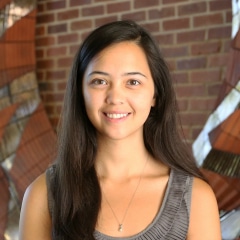
Samantha Nix is a Ph.D. candidate in the Higher Education program at Florida State University. She is interested in understanding college student experiences and major choice through a social psychological lens. Through her dissertation, she is studying field-specific perceptions and its relationship with postsecondary educational outcomes, particularly in mathematics-intensive science fields. Her dissertation research will illuminate the role of college experiences in shaping students’ beliefs about fields of study, and differences in perceived ability by gender and race/ethnicity identity. While at FSU, Samantha has worked as a research assistant under multiple faculty in the Educational Leadership & Policy Studies department, the Center for Postsecondary Success, and at the National High Magnetic Field Laboratory’s Center for Integrating Research and Learning. Her professional experience has included coordinating the FSU Certificate in Institutional Research and FSU’s Women in Mathematics, Science, and Engineering (WIMSE) Living Learning Program. She earned her M.S. in Higher Education at FSU in 2013, and B.A. degrees in English Literature and French at the University of Southern Mississippi in 2009. She has been published in Frontiers in Psychology and Research in Higher Education.
Exclusivity through Challenge: Perceptions of Difficulty in Mathematics-Intensive STEM Fields at the Intersection of Race/Ethnicity and Gender
This dissertation aims to develop a framework for how societal beliefs about challenge in science, technology, engineering, and mathematics (STEM) influence students’ subsequent decisions to major, complete degrees, and intent to pursue careers in those domains. Recent evidence suggests beliefs that mathematics-intensive subjects like physics, engineering, mathematics, and computer sciences (PEMC) (Nix, Perez-Felkner, & Thomas, 2015; Perez-Felkner, McDonald, Schneider, & Grogan, 2012) are extremely difficult and are appropriate only for those possessing innate gifts (Dweck, 2008; Leslie, Cimpian, Meyer, & Freeland, 2015). Research additionally points to differences in ability beliefs by race/ethnicity and gender (OECD, 2015). However, how these identities affect perceptions of field-specific exclusivity and STEM major/career choice is not yet fully understood. Using nationally representative Education Longitudinal Study: 2002/12 data as well as a qualitative analysis of original interview data, this dissertation will (1) distinguish between students’ general belief in their STEM competence and their perceived ability under challenge in mathematics-intensive fields, (2) demonstrate the specific association between perceived ability under challenge in mathematics-intensive fields and major and career outcomes, (3) identify how students make meaning of their experiences with challenge in mathematics-intensive fields, and (4) describe how the postsecondary experience shapes perceived ability under challenge. Findings will help inform researchers, practitioners, and policymakers of the existence, impact, and developmental process of perceived ability under challenge.
Natasha Quadlin, Indiana University
Natasha Quadlin is a PhD candidate in the Department of Sociology at Indiana University. Her research focuses on social inequalities in access and returns to education. In her dissertation, Natasha uses experimental methods and surveys to assess how gender shapes the evaluation of student academic performance, and how these evaluations matter outside of schools. Other projects have examined inequalities in higher education (Social Forces, Gender & Society) and intersections between schools and families (Social Science Research). Her work has been funded by an NSF Graduate Research Fellowship and Dissertation Improvement Grant, as well as grants from the NLSY97 Postsecondary Research Network and Time-Sharing Experiments for the Social Sciences. Natasha earned a BS in social policy from Northwestern University and Master’s degrees in sociology and applied statistics from Indiana University.
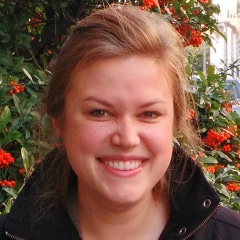
Academic Performance and Gender: Perceived Causes and Potential Consequences
Student academic performance (e.g., grades, test scores, teacher assessments) matters a great deal within schools. Outside of educational contexts, however, academic performance has more ambiguous meaning and implications—both of which are intertwined with gender. Because gender influences the way people think about and evaluate measures of academic performance, scholars must consider how gender shapes the role of academic performance in society. To that end, this dissertation is comprised of three interrelated studies that share a core focus on gender and the social meaning and consequences of student achievement. These studies draw on multiple original experimental data sources, including an experimental telephone survey, online survey experiments, and an online audit experiment. The first study examines how Americans attribute the root cause of academic performance for boys and girls, including how academic performance is conceptualized in relation to intelligence. The second study considers the consequences of academic performance and gender in the family. I analyze how sibling differences in achievement and gender shape Americans’ ideas about how parents should allocate educational resources, such as homework help and college savings. The third study investigates the labor market consequences of academic performance and gender. I combine data from an audit experiment and related survey experiment to understand how and why employers evaluate college achievement for men and women. Collectively, this dissertation shows how gender affects the way people think about, interpret, and act upon student academic performance, while also demonstrating the versatility of experimental designs for education research.
Johanna Quinn, University of Wisconsin-Madison
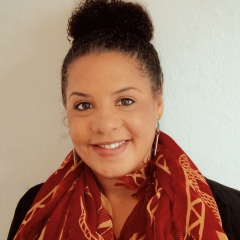
Johanna Quinn is doctoral candidate in Sociology at the University of Wisconsin-Madison. Her research explores public K-12 schools in an era of increased federal oversight and intervention in schools. She focuses on the full array of school employees, from custodians and paraprofessionals to teachers and principals. Her research documents school employees’ daily work experiences to understand schools as a site of labor that reproduce race, class, and gender inequalities. Johanna holds a BA in Psychology from Columbia University, an MS in Sociology from the University of Wisconsin-Madison, and has taught in New York public schools. She is a founding member of Baychester Middle School and is inspired to research, write, and teach about the ways that race, class, and gender intersect in people’s lived experiences.
Unequal Work in Unequal Schools: Working in New York City Middle Schools in an Era of Accountability
Public grading of teachers and schools govern the United States’ K-12 school system, creating an environment of high-stakes accountability and continual testing and evaluation. Told from the perspective of New York City public school workers in two case study middle schools, Johanna Quinn’s dissertation examines how race, class, and gender shape the work, experiences, and rewards of employees in the nation’s largest school system. While a wealth of research examines schools’ role in reproducing social inequality among students, her study turns to the adult workforce, that integrally constitutes the educational environment, bringing in a fuller array of school employees, from school aides and custodians to teachers and principals. Her study brings to the forefront the labor and contributions of women of color, who primarily occupy instructional-support positions and who are often left out of accounts of schools. Johanna’s dissertation builds on education scholarship on school organizations and feminist literature on labor to demonstrate how schools reproduce inequalities among school workers and to outline organizational practices that support and hinder school workplace diversity.
Nydia Sanchez, University of North Texas
Nydia Sanchez is a Ph.D. candidate in the higher education program at the University of North Texas. She was born and raised in the border town of Brownsville, TX. Her research explores the social and cultural contexts of postsecondary education for historically marginalized communities, with an emphasis on Latina/o students. During her academic career, she has been recognized as a Bill & Melinda Gates Foundation / Hispanic Scholarship Fund (HSF) Gates Millennium Scholar, an American Educational Research Association (AERA) Carlos J. Vallejo Research Fellow, and an American Association of Hispanics in Higher Education (AAHHE) / Ford Foundation Multidisciplinary Graduate Fellow. Nydia received a B.S. in Economics from Texas A&M University and M.S. in Higher Education from the University of North Texas.

Educational Uplift Along the U.S.-Mexico Border: How Students, Families, and Educators Cultivate a College-Going Culture in Contested Terrain
For students who live along the U.S.-Mexico border, postsecondary educational opportunities are shaped and stimulated by a myriad combination of geographic, socio-economic, political, and cultural forces. Mexican-American and Hispanic families in particular can have little confidence in formal methods of engagement due in part to historically limited access to systems and bureaucracies for immigrants. Thus, these families often consult local, personal, and social networks to help them navigate complex systems, such as education, and accomplish what is needed in their communities.
This research follows the everyday struggles and pursuits of a small group of self-identified Mexican-American and Hispanic college students who, together with their families and educators in the area, bring college knowledge, goodwill, and aid to their communities. Specifically, this research qualitatively explores how academic capital is transmitted and co-constructed in informal spaces, and the ripple effect this activity has on the educational uplift of a border-town community. This research adds context and depth to literature regarding theories of academic and social capital formation and non-traditional policies and practices for postsecondary access and success.
Jacqueline Sims, Boston College

Jacqueline Sims is a doctoral candidate in the Lynch School of Education at Boston College, where she has served as an undergraduate instructor of Adolescent Psychology. During her graduate work with Dr. Rebekah Levine Coley, she has worked on a variety of projects that consider contextual influences on trajectories of both achievement and health. Her co-authored work has appeared in a variety of journals including Social Science & Medicine, Psychology & Health, and the Journal of Educational Psychology. Prior to entering graduate school, Jacqueline served as the Project Coordinator in the Wilbourn Infant Lab at Duke University, and she holds a B.A. in psychology from Duke where she was a recipient of the Robertson Scholarship.
Prospective Relations between Adolescent Achievement and Physiological Health: The School’s Role in Buffering the Hidden Burdens of Academic Success
In the US, persistent health inequities exist across both socioeconomic strata and racial/ethnic groups. Models of upward mobility posit that increased human capital should narrow these gaps, yet higher education and income do not consistently translate into improved health and many race-based health inequities persist even at higher levels of SES. As a possible explanation for these persistent inequities, recent evidence suggests that striving for academic competence in adolescence—an important precursor of social mobility—in contexts of both socioeconomic disadvantage and racial/ethnic marginalization may actually exacerbate health inequities by repeatedly triggering stress responses that compromise health. It is still unclear whether such associations operate as a function of cumulative exposure to risk (including both SES and racial/ethnic marginalization), or whether they would emerge outside of collective disadvantage. Further, little is known about how the school context may affect such associations between achievement and health, despite extensive evidence suggesting that opportunities for SES comparisons or for discrimination at school may amplify the stressors associated with striving for academic achievement.
In order to further our understanding of academic success as a potential context of stress, this work seeks to (1) examine associations between adolescent achievement and adult physiological health; (2) consider how these associations may vary across contexts of marginalization, specifically SES-related risk or membership in a traditionally marginalized racial/ethnic group; and (3) assess whether SES or discriminatory characteristics of schools moderate these associations. Results will help to clarify links among achievement, health, and contexts of marginalization and will also seek to delineate protective school-based mechanisms in these associations.
John Singleton, Duke University
John D. Singleton is a Ph.D candidate in Economics at Duke University where his primary research interests include school choice and public finance. John’s research applies tools from industrial organization to understand the role of policy in shaping education outcomes. His dissertation work examines whether charter school funding is effective at incentivizing competition or leads charter schools to underserve costly-to-educate students and simulates the effects of counterfactual funding policies on the demographic composition and aggregate effectiveness of charter schools. Beyond his interest in education, John’s work on the history of economics has appeared in History of Political Economy. Prior to doctoral study, John received his B.A. in Economics from Calvin College in 2008 and a M.A. in Economics from the University of Colorado Denver in 2010.
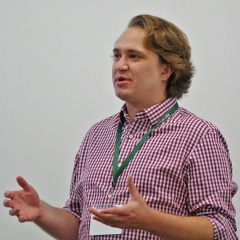
Incentives and the Supply of Effective Charter Schools
Charter school funding is typically set by formulas that provide the same amount for all students regardless of advantage or need. In this paper, I present evidence that this policy skews the distribution of students served by charters towards low-cost populations. I develop and estimate an empirical model of charter school supply and competition to evaluate the effects of funding policies that aim to correct these incentives. To do this, I recover estimates of cost differentials across student populations by linking charter school effectiveness at raising student achievement with unique records of charter school expenditures gathered from Florida. I then leverage revealed preference with entering charter schools’ location choices in an entry game to uncover how charter schools respond to competitive and financial incentives. The results indicate that a cost-adjusted funding formula would significantly increase the share of charter schools serving disadvantaged students with little reduction in aggregate effectiveness.
Patricia Vela, Emory University
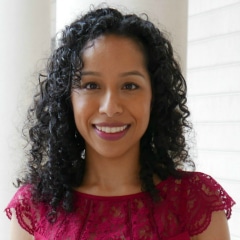
Patricia Vela is a Mathematics Education Ph.D. student at Emory University. She is interested in understanding how technological artifacts, such as robots, can serve as thinking tools to make mathematics more accessible and enjoyable to students. Her research is motivated by her experiences as an undergraduate mathematics student and her nine years teaching high school mathematics. As an undergraduate student at UC Berkeley, Patricia realized that her professors and peers were using problem solving strategies to stimulate their mathematical thinking. Later, she learned that they were using some of Polya’s heuristics and became enthusiastic about the potential of Polya’s work to make mathematics more accessible to students. As a high school teacher, she noticed her students’ unbreakable motivation to figure out robotics challenges. Through her work, she hopes to find robotics-based task that strengthen students’ mathematical knowledge and their enjoyment for mathematics.
Heuristics Employed by Problem Solvers Engaged in a Robotics-based Task
Despite efforts to improve students’ mathematical problem solving, the majority of students still face great difficulty with problems that require analysis or creative mathematical thinking –nonroutine problem solving. Because Polya’s heuristics have often proved fruitful in solving nonroutine problems, the purpose of this dissertation is to explore the potential of a robotics-based task to stimulate problem-solvers to use Polya’s heuristics. Structured, task-based interviews will be used to examine the observable heuristics elicited by a robotics-based task from twelve participants: six undergraduate students and six high school students. Structured, task-based interviews, audio and video recorded, will be coded using a modified version of Kilpatrick’s problem-solving coding system which uses Polya’s work as the theoretical foundation. Data will be collected during an initial interview conducted prior to the robotics-based task to provide some baseline information about the participants’ mathematics background and affect towards robotics. A final interview will be conducted after the robotics-based task to capture the participants’ awareness of the heuristic behaviors they implemented, and to gather feedback regarding the robotics-based task. A checklist matrix will be used to analyze data from the initial and final interviews. This research is valuable to the education community because students’ mathematics conceptualizations are influenced by the instructional tasks given to them in mathematics classrooms. A greater awareness of how instructional tasks stimulate students’ thinking processes can help mathematics educators communicate mathematics better to students, improving students’ nonroutine problem-solving skills and their relationship with mathematics.
Emily Weisburst, University of Texas
Emily Weisburst is an Economics Ph.D. student at the University of Texas at Austin. Her research focuses on topics in Labor Economics, including education, criminal justice and workplace productivity. Emily received her undergraduate degree from Dartmouth College in Economics. Prior to graduate school, Emily worked as an associate at L.E.K. Consulting and then as a research associate at Harvard Business School in the Finance Department. While at the UT Austin, Emily has worked as a research associate and liaison for the RAND Corporation and the Texas Higher Education Coordinating Board, pursuing research on Developmental Education in Community Colleges in Texas. This past year, Emily has been working as a Staff Economist at the Council of Economic Advisors in the Executive Office of the President in Washington, D.C., with a portfolio focused on the intersection of economics and criminal justice policy.
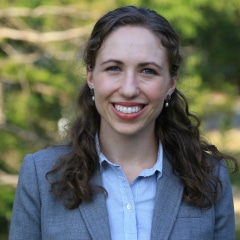
Discipline, Safety and Learning: What is the Impact of Police Officers in Public Schools?
In recent years, public schools have increasingly employed police to manage safety and discipline. The increase in police presence within schools is likely to impact school security, disciplinary management and cultural environments. In turn, these consequences may have large impacts on different student populations. This research project will address whether school police have an impact on student attendance, school discipline, academic performance and school safety. Particular attention will be paid to which schools and student groups may be most likely to be affected by additional police presence. The analysis for this project will use student level administrative data in Texas from 1998-2013 linked to information on federal grant receipts for police in school districts. The research design will compare outcomes for school districts that were awarded federal grant funds for police in schools with school districts that applied for a federal grant but were denied funds. This comparison is constructive because it compares districts that are interested in increasing police presence in their schools, and therefore are likely to be similar in their disciplinary culture and goals. In the federal grant data for Texas school districts, several of the organizations applying for grant funding are accepted in some years and rejected in other years. This overlap of grant recipients and rejects suggests that a comparison of these student and school outcomes between these groups will be informative and provide an estimate of the impact of police presence on public schools.
Kathryn Wiley, University of Colorado Boulder

Kathryn E. Wiley is a doctoral candidate at the University of Colorado Boulder School of Education. She is currently a research assistant at CU Boulder and research associate for the University of Denver where she works for a University-district partnership. Her research focuses on school reform and racial equity; draws from theories of organizational change and sociology of education; and is conducted using qualitative methodology. She has worked for the U.S. Department of Education Office for Civil Rights and the Civil Rights Project/Proyecto Derechos Civiles. She received her B.A. at Wright State University in Dayton, Ohio and her M.A. in Education Policy from the University of Colorado Boulder. Earlier in her career she worked as a youth advisor and as an instructor for Upward Bound.
Explaining the Contradictions: Autonomy, Equity, and the Development of Exclusionary Discipline and Tracking Practices in an Innovation School
In places such as Massachusetts, Washington, and Colorado, policymakers are turning to “Innovation schools” and other autonomous forms of schooling in the hopes of improving school performance. These schools are provided increased autonomy from the district and are promoted on the basis that they will improve educational access and equity for traditionally underserved families; however, historical civil rights legacies illustrate that school autonomy has had different implications for different communities depending on how educators enact such reforms. Increased autonomy may offer one way to improve schools, but at the same time it also raises questions about how educators will use their decision-making power, and how these decisions will impact students’ access to educational opportunities. This 2.5-year ethnographic dissertation study of an Innovation school identified two key practices that challenged the school’s realization of providing greater educational opportunities to all students: the use of exclusionary school discipline and academic tracking, both of which created a racialized hierarchy of opportunity in the school. In light of these practices, I asked: (1) in a school premised upon greater flexibility and opportunity for all students, what processes drove the development of these inequitable practices? (2) What role did autonomy play in these developments? (3) What can the development of these practices tell us about the processes through which equity may be realized within Innovation schools? The analysis draws on social practice theorists and theories of organizational change to offer educators, researchers, and policymakers insights into the practices that arose in an autonomous school setting, and contextual processes that drove them.
